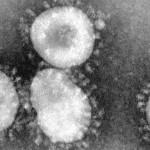 Few will forget the sense of global concern when, in 2003, a mysterious virus killed nearly 800 people. The SARS virus – a type of coronavirus that originated in rural China but spread to 37 countries – was to blame.
Few will forget the sense of global concern when, in 2003, a mysterious virus killed nearly 800 people. The SARS virus – a type of coronavirus that originated in rural China but spread to 37 countries – was to blame.
So naturally concern has greeted the emergence of a new virus with SARS-like qualities in the Arabian Peninsula. As The National reported, a 73-year-old Emirati man was pronounced dead in a German hospital last week after being airlifted there for treatment. First treated at hospital in Abu Dhabi, the man is believed to have contracted the disease while in Saudi Arabia. He was the 17th case reported in recent weeks, and the 11th to die of the illness.
Health experts in the UAE are urging residents not to panic after this recent death, and they are right to do so. Global pandemics are exceedingly rare; despite globalisation the world has thankfully not experienced a horrific pandemic – with millions of casualties – since the 1918 Spanish Flu outbreak.
The reason for this, of course, is advances in virus detection, and better international cooperation in prevention and isolation. That’s precisely why the emergence of a potentially deadly virus in the UAE must not cause panic, but instead lead to increased vigilance, careful study and a coordinated official response across government agencies.
Local health authorities have reassured the public that there have been no more suspected cases. Area hospitals have policies in place to deal with outbreaks, and officials are monitoring health data. Still, this virus should be seen as an opportunity to increase reporting, detection and prevention programmes to add even more layers of protection.
Combating disease outbreaks, and insulating the planet from pandemics, is a never-ending battle. It is also a battle that the UAE could invest more heavily in. According to Mansour Al Zarouni, a consultant molecular microbiologist in Dubai, the UAE is the only GCC country that does not have a functioning virology centre to conduct testing, save for one in Sharjah that is not yet up and running. This is a situation that needs immediate attention.
Moreover, the UAE must develop a comprehensive public health strategy to educate the public, and allow for sharing of health data across international borders. Knowledge of this new virus is still in its early stages. When more is known, medicine will hopefully be able to render it relatively harmless.
Source: The National

















